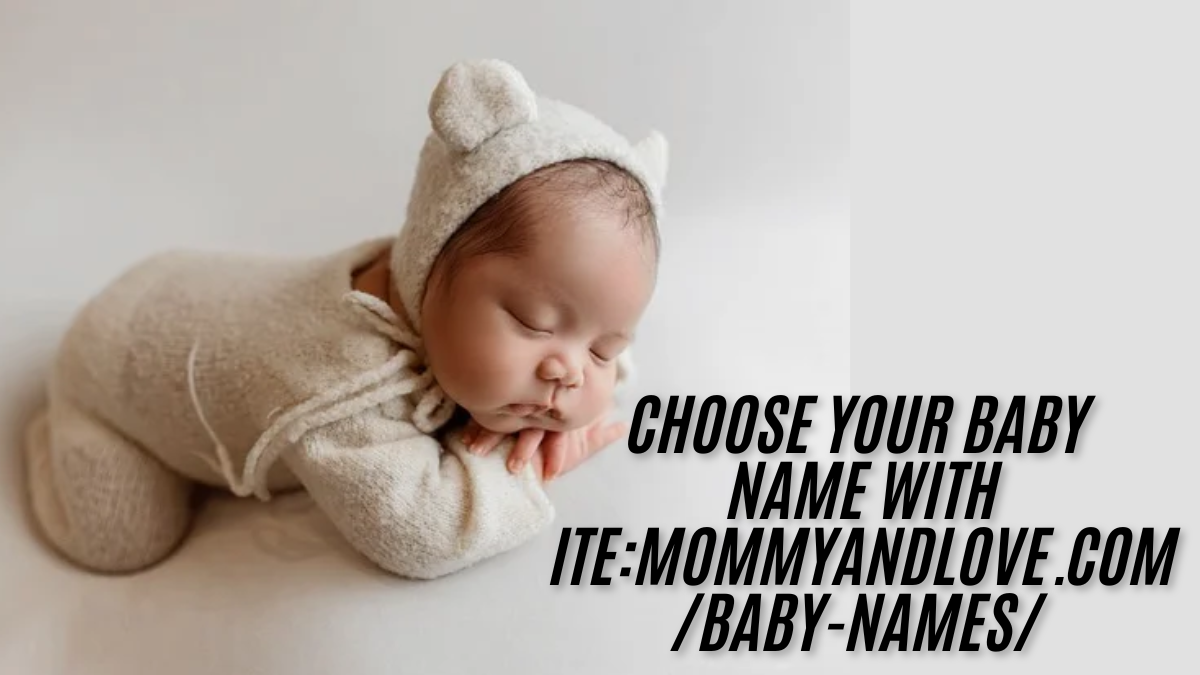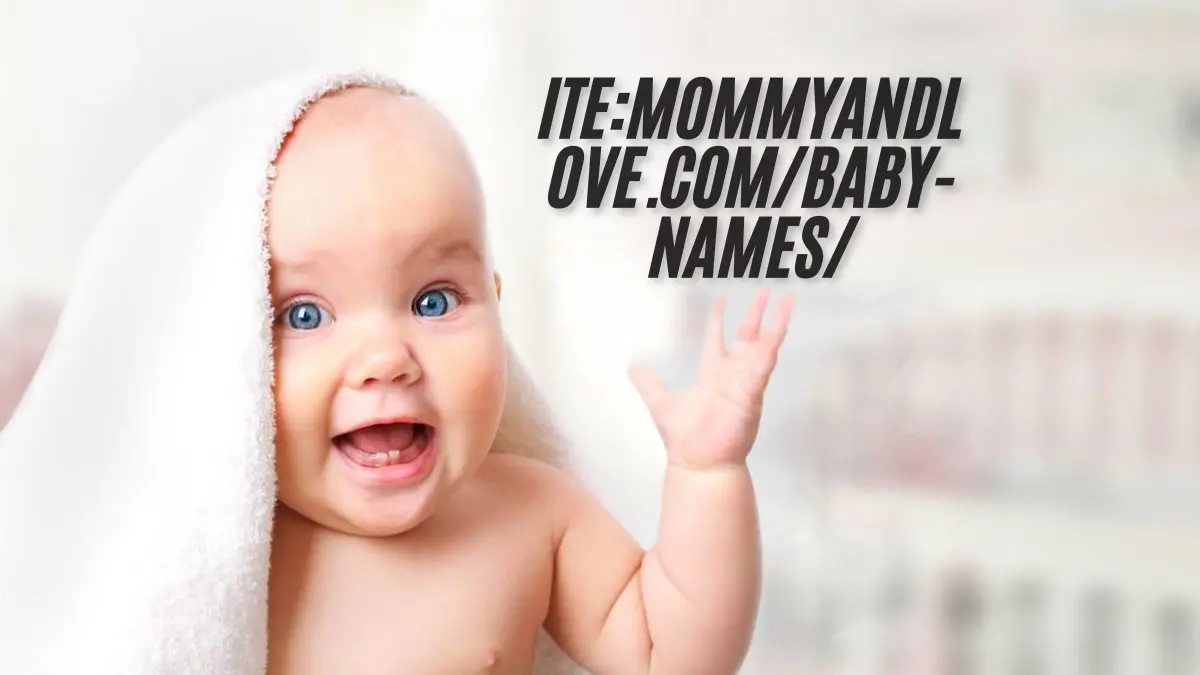Choosing a ite:mommyandlove.com/baby-names/ is one of the first major decisions parents make for their child. It’s an act filled with emotion, thoughtfulness, and sometimes even a bit of pressure. A name carries much more than just a label—it holds the potential to shape the way the world perceives a person, reflects cultural values, and connects an individual to family traditions or even aspirations. A baby’s name can convey a sense of identity, history, and love, which is why this process is often approached with careful consideration.
The significance of a ite:mommyandlove.com/baby-names/ varies across cultures and families, but there are some common threads that make naming a child a universal experience. The act of naming represents the beginning of an individual’s journey through life, and it’s something that stays with them forever. Because of its weight, many parents spend countless hours pondering over which name will best encapsulate who they want their child to be and how they want them to be perceived. Whether it is the name of a beloved relative, a name inspired by a favorite book or movie, or something completely unique, every name carries a story.
The Cultural and Historical Significance of Baby Names

Names are deeply tied to cultural and historical traditions. In many cultures, names are passed down through generations, creating a sense of familial continuity and honoring ancestors. For instance, certain names may be chosen to preserve a family lineage or to remember a loved one. In other cases, names might have specific cultural meanings tied to values, virtues, or milestones.
In many parts of the world, the meaning of a name is incredibly significant. For example, in certain African cultures, names are not just chosen for their beauty or sound, but for their meaning, which reflects important characteristics or events. The same goes for names in the Hebrew, Arabic, and Indian traditions, where names often carry religious or spiritual weight. Parents who follow such traditions may select names that reflect a particular belief system or wish for the child’s future.
Additionally, naming trends can change with the times, reflecting shifts in culture, fashion, and even political movements. Certain names may rise and fall in popularity due to famous personalities, historical events, or changing societal values. It is not uncommon for a name to be in vogue for a few decades and then become less popular as tastes evolve. Understanding the cultural and historical weight of a name can help parents choose something that aligns with their heritage and the message they want to convey.
The Power of Meaning Behind Names
The meaning of a name is often one of the driving forces behind a parent’s choice. While some may select names because they sound pleasant, others may seek names that have a deeper significance. Names that have strong meanings can inspire a child as they grow older, providing them with a sense of purpose or pride in their identity.
Many parents look to names that have positive or hopeful meanings, such as those that represent strength, wisdom, beauty, or kindness. For example, names like “Valeria,” meaning strength, or “Sophia,” meaning wisdom, are often chosen with the intention of imparting certain traits to the child. Similarly, names rooted in nature, such as “Lily” or “River,” might be selected to evoke feelings of calm, purity, or connection to the environment. Names that carry deep meanings can also serve as a source of inspiration for the child as they mature, providing them with a connection to the ideas, stories, or values that the name represents.
In some cultures, the meaning of a name may be associated with specific attributes or roles that are important to the family or community. For instance, a name like “Ava” may symbolize life or living, reflecting a wish for the child to live a fulfilling and prosperous life. Choosing a name based on its meaning allows parents to infuse their child’s identity with their hopes and dreams for their future.
The Rise of Gender-Neutral Baby Names
In recent years, there has been a noticeable shift toward gender-neutral names, reflecting broader societal changes regarding gender roles and identities. While traditional names often have clear gender associations—such as “John” for boys or “Mary” for girls—many parents today are opting for names that are not tied to any specific gender.
Gender-neutral names offer flexibility and inclusivity, allowing children the freedom to define themselves without the constraints of traditional gender expectations. ite:mommyandlove.com/baby-names/ like “Taylor,” “Jordan,” and “Alex” have become popular choices for parents seeking a modern, progressive approach to naming their child. These names allow the individual to grow into their identity without being boxed into a predefined gender category.
Gender-neutral ite:mommyandlove.com/baby-names/are also becoming more common for their practicality. They work well across different cultures and are easy to pronounce in various languages, making them ideal for families who travel frequently or live in multicultural environments. They also provide a sense of equality, giving children the same opportunities and expectations regardless of their gender.
For parents who value inclusivity, choosing a gender-neutral ite:mommyandlove.com/baby-names/ for their child is a meaningful way to align with contemporary values. It can also open up new possibilities for expression, offering an egalitarian approach to naming that transcends old norms.
Choosing Between Traditional and Modern Names
The debate between traditional and modern ite:mommyandlove.com/baby-names/ is a common dilemma for many parents. Traditional names often come with a sense of history and familiarity, evoking images of past generations or classic literature. They might carry religious or familial significance, connecting a child to their roots and cultural heritage.
On the other hand, modern ite:mommyandlove.com/baby-names/ are often chosen for their unique or innovative qualities. These names may be inspired by contemporary figures, popular culture, or even made-up names that break away from convention. The rise of unique names has been amplified by social media, where parents are increasingly inspired by trends, celebrities, and pop culture phenomena.
Some parents may choose a name that strikes a balance between tradition and modernity—one that honors the past while still feeling fresh and new. For example, classic names like “Elizabeth” or “William” may be combined with a more modern middle ite:mommyandlove.com/baby-names/ to create a unique identity. The decision between traditional and modern names ultimately comes down to personal preference, cultural context, and what feels right for the child.
The Role of Popularity in Name Selection
Another significant factor in choosing a ite:mommyandlove.com/baby-names/ is its popularity. While some parents prefer unique or less common names to ensure their child stands out, others may opt for names that are more widely used. Popular ite:mommyandlove.com/baby-names/ often have broad appeal and may be seen as timeless or classic. For example, names like “Olivia” or “Liam” are among the most popular in recent years, while names like “Emma” or “James” have remained in the top rankings for decades.
However, the popularity of a name can also have drawbacks. Some parents may worry that their child will have to share their name with multiple classmates, leading to a lack of individuality. Others may simply feel that a more unique ite:mommyandlove.com/baby-names/ would better represent their child’s identity.
On the flip side, the widespread popularity of certain names often reflects cultural trends and preferences. The impact of celebrity culture, TV shows, movies, and books can significantly influence which names gain traction. As a result, some ite:mommyandlove.com/baby-names/may experience a surge in popularity, only to fall out of favor years later. Ultimately, parents must weigh the pros and cons of selecting a popular name and decide whether it aligns with their child’s personality and family values.
The Final Decision: Trusting Your Instincts
At the end of the day, the best advice when choosing a ite:mommyandlove.com/baby-names/ is to trust your instincts. While it’s important to consider meaning, sound, cultural significance, and trends, there is no one-size-fits-all approach to naming a child. Parents should choose a name that resonates with them and feels right for their family. Whether it’s a ite:mommyandlove.com/baby-names/ with deep personal meaning, a name that honors a cultural heritage, or simply a name that feels beautiful when spoken aloud, the right choice will ultimately reflect the unique bond between parents and child.
The ite:mommyandlove.com/baby-names/ you choose will accompany your child through life, serving as a reminder of your love and the hopes you have for their future. It’s a powerful gift, one that will be cherished and carried with them for a lifetime.




